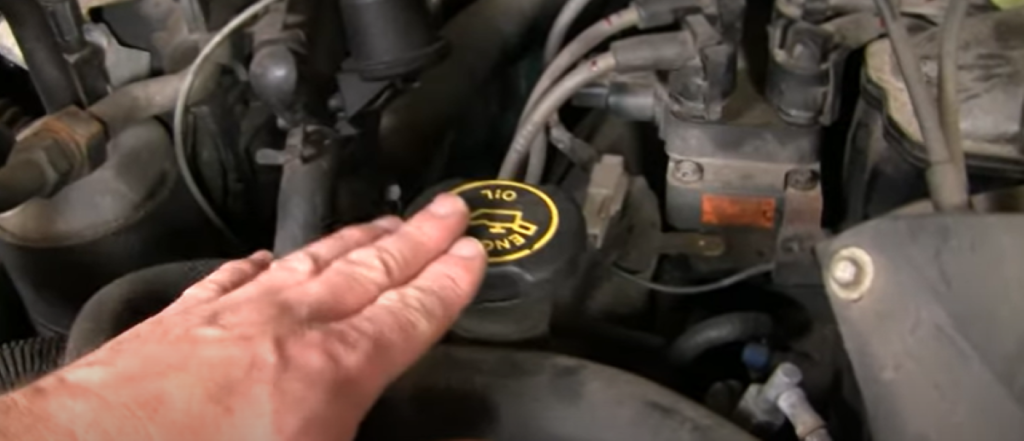Learn how to check oil in any vehicle. This video and guide will show you how to find out what kind of oil you need, where to add oil in your car, and how to check the oil level. We demonstrate how to do this on a 1998 Ford Explorer.
How to Check the Oil Level, Tell If You Need More, and Where to Add the Oil in Your Car

Steps to check the oil level in your car
- Find the Oil Fill Cap and Dipstick
Look for a big cap labeled “engine oil.” This ’98 Explorer is a rear-wheel drive (RWD) or 4 wheel drive (4WD) vehicle, so the engine is mounted vertically and closer to center of engine bay. A front-wheel drive (FWD) vehicle will have the engine mounted horizontally and closer to the front, so the cap location may be different depending on the vehicle.
Then find oil dipstick. It’s common to have the dipstick labeled “oil” and have a gray or black handle that may be looped. - Park on a Smooth Level Surface
Park the vehicle on a smooth level surface. The vehicle in our example has a dipstick that is closer to the driver side. It falls down into the side of the oil pan, so if the vehicle was tilted toward the driver side, the level will appear higher. If it’s tilted to the passenger side, it will appear lower.
- Remove the Dipstick
Grab dipstick and lift up and out.
- Clean the Dipstick Off
Clean it off with a cloth
- Reinsert the Oil Dipstick
Reinsert the oil dipstick fully
- Read the Oil Level
Remove and read the oil level at the end of the dipstick.
The dipstick will have an indication of a high and low level marking. In this example, the oil dipstick has two dots with crosshatches between them. You would want to oil level to read on the crosshatches, closer to the higher dot or full mark. You do not want oil over or under this line - Check the Oil Condition
You want clear and smooth oil. If the oil is dirty, thick, or creamy, there could be a leak or contamination.
What if there is too much oil?
If there is too much oil, you’ll need to loosen the oil drain pan plug and drain some out. You might want to consider changing the oil if it hasn’t been changed in some time or shows signs of dirty.
What if there is too little oil?
If there is too little oil, the level will be below the low level hashmark. Generally, you’ll add one quart of oil or ½ quart if the level is hallway between the marks, recheck the level, and add more if needed.
How to Add Oil
Find the Recommended Oil for Your Vehicle
Find the oil recommended for the vehicle. On this vehicle there is a tag on the radiator support listing the oil type as 5w-30. Sometimes it’s located further back in engine compartment, or it could be located up on the hood. You could also check the owners manual where you can find engine oil recommendations in the index. They’re usually under engine/engine oil, but you can also look under specifications for a fluid level and specifications section. You might also find the oil type on the oil fill cap.
Remove the Oil Fill Cap, Add Oil, and Check the Level
Remove the oil fill cap. Usually the caps twist off. Some twist off all the way, and some twist for a bit and then need to be pulled off. Then pour oil in there
More on how to properly change the oil on any vehicle


